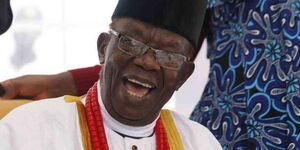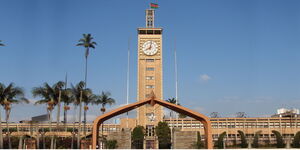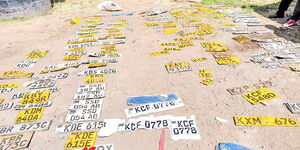The National Treasury Cabinet Secretary John Mbadi on Wednesday night defended the government's measures to widen the tax base by introducing taxes to religious organizations.
Speaking while on Citizen TV, the CS noted all organizations and individuals engaged in business must pay taxes to promote what he termed as equity in taxation across the board, stressing that people who are driving taxable services should not be exempted.
“If you’re doing business, then you must pay tax. Taxes are paid by people who can afford it,” he said, emphasizing that the education system run by religious institutions should also be subjected to taxes.
He noted that under his watch he will not support any taxation of the faith-based organizations in any way as long as they are not engaged in any business.
However, he noted that religious organizations doing business will not be exempted from paying taxes like other business entities. “We must be aware of certain factors, presently, charitable factors are not subjected to taxation, including education institutions,” he said, underscoring the need for everyone doing business to pay taxes.
CS Mbadi decried some of the said institutions charging Ksh1 million per term on students while the government doesn’t tax them, yet at the same time mama mboga who is selling sukuma wiki in Gikomba is taxed. "We tax the low-income earners much more than we tax high-income earners because of unfair tax practices," CS Mbadi lamented.
“It is unfair for such religious organizations to fail to pay taxes if you are doing business please pay taxes. If it is purely religious activities then there is no need to pay taxes to those who are involved in business,” he added.
Churches in Kenya do not pay taxes on their income derived from offerings and donations as long as such income does not come from business operations.
In Kenya, the taxation of churches and religious organizations is governed by the Income Tax Act (Cap 470) which exempts them as their income is generated from offerings, tithes, and donations.
Meanwhile, the CS revealed the government has taken steps to curb ballooning expenditure in the country. “There are steps we have taken to make sure we have managed expenditure because the reason why we find resistance in paying taxes from Kenyans is that there is a feeling in this country that we are misusing the taxes that we collect,” he observed.
Of crucial importance, CS Mbadi stated that his ministry has approved the e-procurement system, end to end to ensure there is minimal human interaction with the procurement process.
He observed that for the first time next year, the budget of 2025/26 is going to be based on a zero-based budget, not incremental as it has been over the years.












